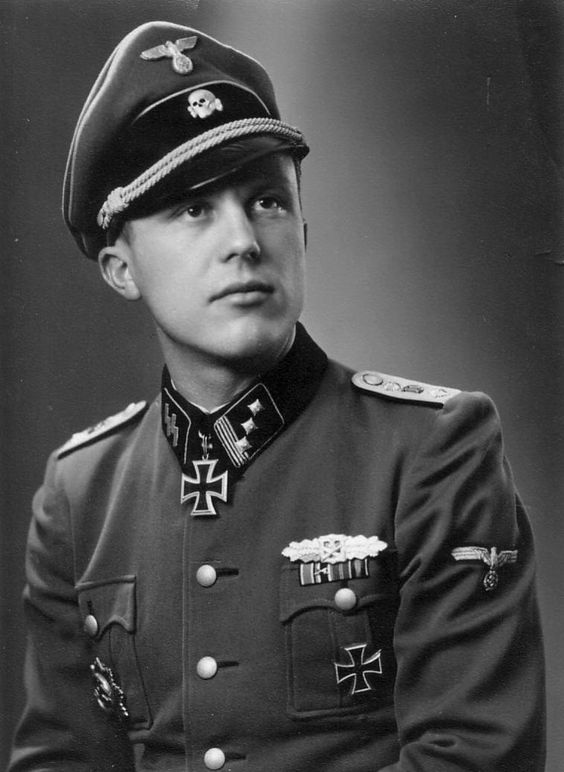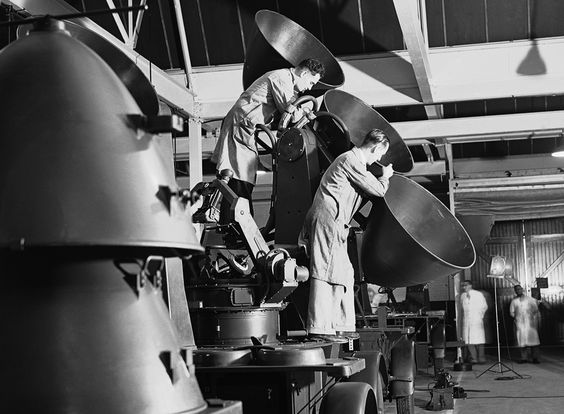Tuesday 30 July 1940
 |
| Dornier Do 17 bombers on a mission. |
The Luftwaffe still tries to entice the RAF fighters into giving battle as part of its attrition strategy. The theme of the day is timid Luftwaffe attacks being chased off by patrolling RAF fighters.
At 09:00, the Luftwaffe approaches the coast at Swanage, but never get near the coast as RAF fighters scare them off.
Around 09:45, another raid in the vicinity of the Isle of Wight runs into RAF No. 601 Squadron. There are some dogfights, with possible losses on both sides.
Some time after 11:00, an attempted raid on Portland fizzles when RAF fighters appear. Another raid around the same time by Stukas on a convoy does not cause any damage.
Significant operations only begin around noon due to the weather.
A few Heinkel 111s attempt to raid Montrose. RAF No. 603 Squadron rises to the defense and chases them off. The Germans lose one of the bombers.
An attack by Bf 110 fighter-bombers is intercepted by RAF No. 85 Squadron, with the Germans losing a plane off of Southwold around 15:30.
Around the same time, the Luftwaffe mounts its major effort of the day. A large formation of about fifty planes heads from the area of the Seine toward the Isle of Wight. Once again, patrolling RAF fighters shoo off most of the attackers. However, some of the planes make it across the coast near Dungeness, where RAF No. 65 Squadron shoots down a Bf 109.
During the evening at 18:48, another, slightly smaller effort approaches from the Cherbourg area. The large formation splits into multiple parts. This raid accomplished whatever objectives it had, as the patrolling RAF fighters never encountered it.
A Junkers Ju 88 suffers engine failure and crashes while attacking shipping in the Channel, the crew taking to a lifeboat.
Shortly before dusk, small raids take place around Esher, Chessington, Heysham, Tolworth, and Swm Bargoed railway tracks.
After dark, there are minor raids around Bristol, Plymouth, Dorset, Devon, South Wales, and the Midlands. The raids do not cause much damage, and the attacking forces lose a Heinkel He 111 from KG 55.
Destroyer HMS Delight, bombed on the 29th, sinks in Portland harbor.
The Channel is closed to convoys, with the area now known as "Hellfire Corner."
Overall, the day is fairly inconsequential, with the Luftwaffe losing about 5 planes and the RAF one or two.
Hitler remains unimpressed by the prospects for an invasion. His military advisors lean toward an earlier invasion rather than later, as time gives the British the ability to regroup the army and form a more effective defense. It is a common dilemma during the war for the Germans: attack quickly with forces available, or wait to build up assets. Usually, a decision to act quickly is more successful, as the main German advantages throughout are surprise tactics rather than larger forces and industrial production. Waiting dissipates the main Wehrmacht advantages.
Hitler decides to wait. He sets 15 September as the earliest time his preconditions for Operation Sea Lion could be met. They are so unrealistic, however, that likely no amount of time would be sufficient absent a complete collapse of the British economy due to bombing and the U-boat blockade. In addition, the OKL (Navy high command) and OKW (military high command) have not agreed on a proper size for the invasion and the location. Landings in the south on a broad front as proposed by the army would face the fiercest opposition anywhere in England. The OKL, on the other hand, believes a targeted landing on the short route toward Dover would be most likely to succeed. Basically, the whole subject of an invasion is unresolved at every level, because the Wehrmacht has never anticipated being placed in that opportunity so quickly by a sudden French collapse.
Battle of the Atlantic: The Royal Navy submarine Narwhal sinks around this date. It is believed that it hits a mine off Norway.
The Luftwaffe attacks Belgian trawler John about 35 miles off southwest Ireland.
British mine layers Plover and Willem van der Zaan (from the Dutch Navy) lay minefield BS.29 in the North Sea.
Convoy HG 40 departs from Gibraltar, Convoy OA 192 departs from Methil, Convoy OB 191 departs from Liverpool, Convoy HG 40 departs from Gibraltar.
U-93 (Kapitänleutnant Claus Korth) is commissioned.
Battle of the Mediterranean: The RAF raids Italian forces near Kassala.
The Anglo-Maltese League launches an appeal in England for funds to purchase fighter planes for Malta. Of course, the underlying problem is not lack of planes, but the inability to get them to Malta. However, this plays into the stirring accounts in the British media of the heroic defense of the island.
On the island itself, there is only one attempted raid in the morning which turns back before dropping any bombs. Air reconnaissance sights an Italian convoy heading south from Messina, Sicily, which may be an invasion fleet or simply carrying supplies to Libya.
Britain was already weakening, it cannot muster the number of planes required to conquer our glorious Luftwaffe, they are losing a battle that they are intent on prolonging.It is a classic case of talking loudly while in a tight situation rather than, as Teddy Roosevelt suggested, talking softly but carrying a big stick. In fact, the RAF shows no signs of weakening, as this very day's events show.
Anglo/Swedish Relations: A British destroyer flotilla commanded by Captain C. Caslon intercepts a flotilla of four destroyers built in Italy which have been purchased by Sweden and are en route to that country. While not a "war crime" because Sweden is not at war, it is a serious breach of international law, as the Royal Navy has no grounds for seizing the ships of a neutral country. The Swedes issue a diplomatic protest for the safe return of its ships.
Anglo/Japanese Relations: British Foreign Minister Lord Halifax issues a diplomatic protest against the recent Japanese arrest of British citizens on espionage charges.
German/Swiss Relations: Germany shuts down the German/Swiss border, heightening Swiss fears of an invasion.
Latin American Relations: The 21 nation-delegates in Havana sign the Act of Havana, which proposes a joint administration of European colonies in the Americas which appear vulnerable to "changes of sovereignty." While elegantly phrased in lawyerly language, the agreement basically provides that the signing nations will take over any areas controlled by nations invaded by Germany that look like they are going over to the Axis.
Baltic States: The new Soviet-controlled government continues its purge of former national leaders in the Baltic States, arresting former Estonian President Konstantin Pats and sending him to Siberia.
British Government: Victoria Crosses are awarded to two soldiers: Lieutenant (now Captain) H. M. Ervine Andrews of the East Lancashire Regiment and (posthumously) to Lance Corporal H. Nicholls of the Grenadier Guards. Andrews receives one for conspicuous gallantry on the Dunkirk perimeter on 31 May, while Nicholls is honored for commanding troops north of Tournai on 21 May despite being wounded and "firing from the hip" as he personally charged the enemy lines.
The Minister of Economic Warfare announces that the British blockade now encompasses all of Europe and North Africa - including Vichy France.
 |
| While this looks like it was taken in London during the Blitz, it actually is a factory fire in Camden, New Jersey on 30 July 1940. It is known as the Hollingshead Fire. |
July 1940
July 1, 1940: Vichy France
July 2, 1940: Arandora Star
July 3, 1940: Operation Catapult at Mers El Kébir
July 4, 1940: Romania In Crisis
July 5, 1940: The Five Freedoms
July 6, 1940: Hitler's High Point
July 7 1940: Dakar And Ringo
July 8, 1940: Tea Rationing in England
July 9, 1940: Battle of Calabria
July 10, 1940: Battle of Britain Begins
July 11, 1940: "Nous, Philippe Petain"
July 12, 1940: Enter Laval
July 13, 1940: German Surface Raiders Attack!
July 14, 1940: Bastille/Mourning Day
July 15, 1940: Tallest Man Dies
July 16, 1940: Plans for Sea Lion
July 17, 1940: Burma Road Closed
July 18, 1940: FDR Runs Again
July 19, 1940: Last Appeal To Reason
July 20, 1940: First Night Fighter Victory
July 21, 1940: Soviets Absorb Baltic States
July 22, 1940: First RAF Night Fighter Victory
July 23, 1940: Invasion False Alarm
July 24, 1940: The Meknés Incident
July 25, 1940: Black Thursday for RAF
July 26, 1940: Capture The Duke?
July 27, 1940: What's Up, Doc?
July 28, 1940: Destroyers Pulled From Dover
July 29, 1940: Barbarossa On The Burner
July 30, 1940: Hitler Delays Sealion
July 31, 1940: Bloody Wednesday of Olkusz
2020


No comments:
Post a Comment